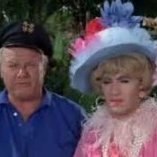Home Water Filter, Is One Filter Enough In Bkk/Pattaya ?
-
Recently Browsing 0 members
- No registered users viewing this page.
-
Topics
-
-
Popular Contributors
-
-
Latest posts...
-
114
Trump has abandoned the Ukraine.
Politics is kind of like baseball. Obama and biden got russia to first and second base. If putin hits a grand slam against trump those earned runs will be credited to the previous administrations. Trump had nothing to do with it -
34
-
77
US CDC report shows no link between thimerosal-containing vaccines and autism
I have already provided evidence and you dismissed it. Your turn. Real papers from real doctors. -
7
Problem with banana growth.
Pretty good ai response, Although from experience, depending on the depth of the sunscald, the underlying fruit can be affected with rapid browning. -
27
Anybody considering growing their own again?
Growing outside can be done and without pesticides or much complexity. Don't try to grow during the period most cannabis outdoor growers will grow in most parts of the world May/November because the rain will wreck just about everything. I even tried using a clear plastic tarp 24 feet off the ground to fend the rain off, but the humidity will rot most flower, tho' I did have some success with Ace Seeds Honduras, a large sativa plant supposedly a mix of Oaxxacan and Colombian, but I don't like the weed I got from it that much. Gorgeous plant tho' and did not have issues with the humidity and heat. I had success with Thai and Lao landrace/heirloom strains growing in the September-March time frame. Probably a bit too late, I lost a number of plants in March to bud rot and powdery mildew. Anything with dense buds is not going to work during that time frame as I found, anything with what most people plant and grow in the west in the dna. You have to plant stuff with fluffy open bud structure, not nuggets, those will rot mostly outside. What grew best for me was Real Seed Company's Lao Gold. Nearly without a hitch and a very enjoyable mood elevating buzz and zero paranoia. Did not spray them for bugs and there did not seem to be any and gave them weekly bat guano extract and molasses and some fermented banana teas as well as stuff off our compost heap and cow poop from the neighbors cows which you get magic mushrooms out of. The plants are also not so enormous so better stealth factor, a nice manageable 6-7 feet high. I would grow them again in a heartbeat, tho' not sure I dare to. -
77
US CDC report shows no link between thimerosal-containing vaccines and autism
You are talking like a confused person. It is you that is making the claims that pathogenic germs /viruses exist. Where is there any evidence? 100s of years of research eh! Point me to a paper then. Of course germs are real. Who has said otherwise? Pathogenic germs are a new argument however. Show where they are capable of transferring illness from one to another causing the same illness. Stop the waffle. Stop the nonsense and point to a paper, anywhere, at any time that shows pathogens exist. In Dr Roytas' book he closely examines past studies, many by the US Naval Medical. Take a read Sir. Plenty of evidence is out there. By the way Sir your examples '',,,,Measles, HIV, Covid, Flu?'' are not caused by a virus, and the symptoms of them are not pathogenic. Nature has all the answers we seek.- 1
-

-
-
Popular in The Pub





.thumb.jpg.82631abb512ae61a745d964452c5b1b9.jpg)








Recommended Posts
Create an account or sign in to comment
You need to be a member in order to leave a comment
Create an account
Sign up for a new account in our community. It's easy!
Register a new accountSign in
Already have an account? Sign in here.
Sign In Now